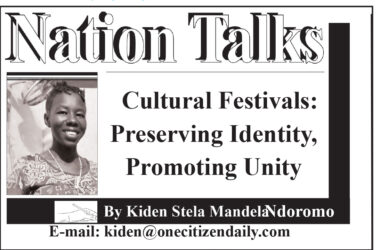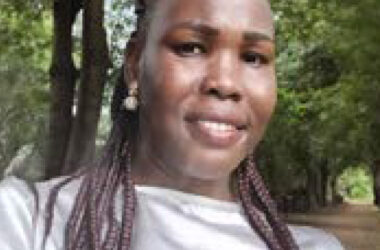By Chol Peter Majoh
In a post on X (formerly Twitter), Muhoozi Kainerugaba, the son of President Museveni, a few months ago stated: “… when we were fighting for Ugandan freedom in Teso, Lango, Bundibugyo, Garamba, Mogadishu, Juba, and Bor, those ‘fake lovers’ of Uganda were nowhere to be seen.” – Muhoozi Kainerugaba.
Recently, Uganda’s Minister of Sports, Peter Ogwang, echoed this sentiment in a slightly different manner:
“That country [South Sudan] is what it is because of our blood. If it were not for our brothers and sisters who sacrificed their lives to liberate that country [South Sudan], it would not be where it is today,” remarked Hon. Peter Ogwang, Uganda’s State Minister of Sports, before the match between Uganda and South Sudan at Juba National Football Stadium on October 15, 2024, as reported by Eye Radio’s Facebook page.
This situation is concerning and warrants our attention. Given our ongoing border disputes with Uganda, the assertion that Uganda liberated South Sudan should be approached with scepticism and caution.
Authorities in Kejo-Keji have reported incidents of assaults by the Uganda People’s Defence Force (UPDF) against South Sudanese individuals residing near the border. A recent incident involved UPDF personnel attacking South Sudanese farmers in their fields and detaining them. Similarly, residents of Magwi County in Eastern Equatoria State have faced attacks from the UPDF at the border.
While Uganda has historically been a friend to South Sudan, its current actions suggest a departure from that friendship, necessitating a warning. It is crucial that we do not jeopardize our relationship. Considering the trade and collaboration between Uganda and South Sudan, as well as the presence of South Sudanese citizens studying and living in Uganda, we should prioritize unity over divisive claims that could harm our ties.
Furthermore, as members of the East African Community (EAC), we should embrace our shared identity in Eastern Africa and focus on development, coexistence, and unity.
Our sister Uganda should understand that the implications of these claims extend beyond historical context; they (these claims that Uganda liberated South Sudan) threaten to strain the diplomatic and economic ties that have been cultivated over the years. The trade relationships and collaborative efforts between Uganda and South Sudan are vital for both of us, and the presence of South Sudanese citizens studying and living in Uganda further emphasizes the interconnectedness of the two countries.
However, as a concerned citizen, I feel compelled to voice my strong encouragement for the government of South Sudan to take a proactive stance in addressing the claims that suggest Uganda liberated our nation. Such assertions are not only unfounded but also risk distorting the historical narrative of our fight for freedom. It is crucial that we challenge these claims vigorously to ensure that the true story of our liberation is accurately represented and understood.
While it is undeniable that one country can extend assistance to another in times of need—Ethiopia, as said earlier, for example, provided invaluable support during our own struggle for freedom and independence without seeking any form of recognition or credit for their involvement—Uganda’s role in our history should not be overstated. While we appreciate the assistance that Uganda has offered, it is important to recognize that our liberation was primarily the result of our own efforts, sacrifices, and the resilience of our people.
Moreover, it is worth noting that South Sudan has also extended its support to Uganda during times of conflict, particularly during the struggles involving Joseph Kony and the Lord’s Resistance Army. This mutual support underscores the importance of regional solidarity and cooperation, but it should not be misconstrued as a narrative of liberation.
Therefore, it is essential for our government to scrutinize these statements carefully and to engage in a thoughtful dialogue about our history. We must ensure that the contributions of all nations involved in our struggle are acknowledged appropriately, without allowing any single narrative to overshadow the collective efforts of our own people. By doing so, we can foster a more accurate understanding of our past and strengthen our national identity as we move forward.




